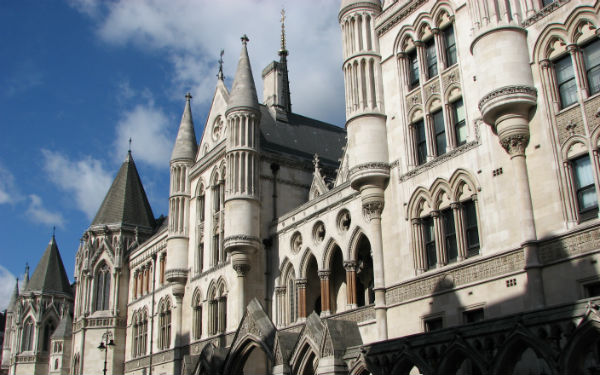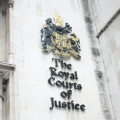
By Rob Preston & Mithran Samuel
Children under 16 experiencing gender dysphoria can consent to receive puberty blockers if their doctor deems they are competent to do so, the Court of Appeal has ruled.
In doing so it overturned a High Court judgment last December, which had said that it was highly unlikely that a child under 13 could give informed consent to the treatment, and very doubtful that a child aged 14 or 15 could, because of the nature of the information they would need to understand.
The High Court had indicated that clinicians should seek court approval to proceed with puberty blockers for children under 16, prompting NHS England to immediately require that such authorisation was sought to ensure treatment was in the child’s best interests.
It later modified this in the light of a subsequent family court judgment to enable parents to consent on their child’s behalf so long as the decision had been supported by a new independent multi-professional group. But since December 2020 no child under 16 has started on puberty blockers following referral from the national Gender Identity Development Service (GIDS) based at the Tavistock and NHS Portman and NHS Trust, inews has reported.
However, the Court of Appeal found that, while court applications may be appropriate in certain cases – for example, where there were disputes between doctors, patients and parents – clinicians would normally determine whether children were able to consent.
Following the judgment, the trust, which refers patients to two endocrinology clinics run by other trusts for the treatment, told inews it expected referrals to resume shortly.
Keira Bell, a former GIDS patient who received puberty blockers, cross-sex hormones and surgery before detransitioning, brought the original judicial review against the Tavistock, along with the mother of a child experiencing gender dysphoria on the GIDS’s waiting list. Bell had argued that the service should have challenged her decision to take puberty blockers at the age of 16, which she now regrets.
She said she was disappointed with the Court of Appeal ruling and would seek permission to appeal to the Supreme Court.
However, the Tavistock welcomed the Court of Appeal judgment, saying it “affirms that it is for doctors, not judges, to decide on the capacity of under-16s to consent to medical treatment”.
Related articles
- NHS trust ordered to pay social worker £20,000 over whistleblowing on gender identity service
- Regulator calls for debate on social media use after warning social worker for ‘anti-trans’ posts
- Why judgment in puberty blockers case should not obscure benefits of transition for some children
- Puberty blockers and consent to treatment: an analysis of the High Court’s ruling
Competence to consent
The High Court had rejected the claim brought by Bell and her co-claimant that children were not “Gillick competent” to consent to receive puberty blockers, meaning they did not have sufficient understanding and maturity to fully appreciate what was involved in their treatment. It also rejected their claim that the information provided by the Tavistock to patients was misleading and insufficient to enable them to give informed consent.
However, it issued a declaration setting out what children would have to understand and weigh in order to be competent to consent. It then issued guidance, saying that there would be “enormous difficulties” in a child under 16 achieving competence, indicating clinicians would need to seek court approval to proceed with treatment.
In its declaration, the High Court had said children would need to understand not just the implications of taking puberty blockers but also of taking cross-sex hormone treatment, designed to help children transition to their experienced gender. This was on the grounds that “the vast majority” of those taking puberty blockers went on to take cross-sex hormones, which it said may well affect future fertility, sexual function and relationships. It also asserted that the child would need to understand the “unknown physical consequences” of taking puberty blockers and the “fact that the evidence base for this treatment [was] as yet highly uncertain”.
“The issue in our view is that in many cases, however much information the child is given as to long-term consequences, s/he will not be able to weigh up the implications of the treatment to a sufficient degree,” High Court judges added. “There is no age appropriate way to explain to many of these children what losing their fertility or full sexual function may mean to them in later years.”
‘Improper restriction on Gillick’
However, the Court of Appeal ruled that the High Court had “placed an improper restriction on the Gillick test” in its declaration.
This was because it presented as facts issues that were the subject of medical and expert dispute, notably that the vast majority of children taking puberty blockers went on to take cross-sex hormones and that blockers had unknown consequences and a highly uncertain evidence base. It had thereby turned these “expressions of judicial opinion” into a “statement of law”.
By contrast, the 1986 Gillick judgment, which concerned access to contraception, said that, in law, a child’s competence was based on them having sufficient understanding to fully appreciate what the treatment involved, but it was for clinicians to determine whether this was true in a particular case.
The High Court had also departed from Gillick in its guidance by generalising about the capacity of children of a particular age to achieve competence. It had also required applications for court authorisation in circumstances where, as the High Court had recognised, there was no legal obligation to do so, said the Court of Appeal.
“It placed patients, parents and clinicians in a very difficult position,” the Court of Appeal found. “In practice the guidance would have the effect of denying treatment in many circumstances for want of resources to make such an application coupled with inevitable delay through court involvement.”
Doctors to decide
The Court of Appeal found that doctors should be able to decide on a child’s Gillick competence generally and also whether to refer cases to court for a best-interests decision.
“As we have said, applications to the court may well be appropriate in specific difficult cases, but it was not appropriate to give guidance as to when such circumstances might arise,” the court ruled.
The Tavistock said the judgment respected “the ability of our clinicians to engage actively and thoughtfully with our patients in decisions about their care and futures”.
“It affirms that it is for doctors, not judges, to decide on the capacity of under-16s to consent to medical treatment,” the trust said in a statement.
“This has been a fundamental part of the legal basis for health services for young people in this country and it is very significant that it has been reinforced so strongly in this judgment.”
The trust said it would work with commissioners and partners to improve the quality of care and decision making for its patients as well as the evidence base for treatment for children with gender identity issues.
However, Bell said the ruling did not address “the significant risk of harm” that children were exposed to by being given puberty blockers. Explaining her decision to seek permission to appeal to the Supreme Court, she said that the GIDS service sat “outside conventional medical practice and [had] become politicised”, meaning it was “inadequate to say ‘trust the doctor’”.
NHS to review treatment
Bell said she had “no regrets” about bringing the case and said it had been a “catalyst” for NHS England’s decision to examine the country’s approach to transgender healthcare.
Last year, NHS England commissioned Dr Hilary Cass to review of gender identity services for young people, including the use of puberty blockers and cross-sex hormones, and she is expected to publish her findings next year.
“This will set out wide-ranging recommendations including on the use of puberty blockers and the many contested clinical issues identified by the court,” a spokesperson said.
“An independent multi professional review group will continue to confirm whether clinical decision making has followed a robust consent process now that the endocrine pathway has been re-opened by the Tavistock.”





 Bournemouth, Christchurch and Poole
Bournemouth, Christchurch and Poole  Hampshire County Council
Hampshire County Council  Lincolnshire County Council
Lincolnshire County Council  Norfolk County Council
Norfolk County Council  Northamptonshire Children’s Trust
Northamptonshire Children’s Trust  South Gloucestershire Council
South Gloucestershire Council  Wiltshire Council
Wiltshire Council  Wokingham Borough Council
Wokingham Borough Council  Children and young people with SEND are ‘valued and prioritised’ in Wiltshire, find inspectors
Children and young people with SEND are ‘valued and prioritised’ in Wiltshire, find inspectors  How specialist refugee teams benefit young people and social workers
How specialist refugee teams benefit young people and social workers  Podcast: returning to social work after becoming a first-time parent
Podcast: returning to social work after becoming a first-time parent  Podcast: would you work for an inadequate-rated service?
Podcast: would you work for an inadequate-rated service?  Family help: one local authority’s experience of the model
Family help: one local authority’s experience of the model  Workforce Insights – showcasing a selection of the sector’s top recruiters
Workforce Insights – showcasing a selection of the sector’s top recruiters 

 Facebook
Facebook X
X LinkedIn
LinkedIn Instagram
Instagram
Personally I welcome these decisions being taken away from ideology warriors but as an previously detained ‘patient’ on a psychiatric ward, I don’t have much confidence in doctors having the final say either. We need a properly neutral and independent collection of competent people to reach the right medical decisions. I don’t feel up to the responsibility of saying how and by whom however. Children matter, parents matter, care givers matter and women’s rights matter. Maybe that’s the collective for helping those who.yearn to transition and those move away from whatever pain they are suffering without making the wrong life changing decision which they later come to regret.
Seems this issue has been neatly picked apart so the law on consent applies consistently to children no matter how poor some individuals’ experience has been, the fact that they did make mistakes there or how dogmatic or shrill some of the voices are on gender issues.
My son had an excellent service from the Tavistock, receiving nothing but care and attention to how he was feeling, leading to nothing more than being equipped to make decisions which in itself led to him gaining confidence to control the timescale. But I accept that that is not the experience everyone had and that this is an area in which good practice is still forming.
The level of scrutiny that will now be applied to any physical intervention offered to children exclusively through this service will be absolutely monumental.